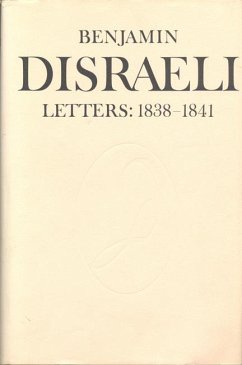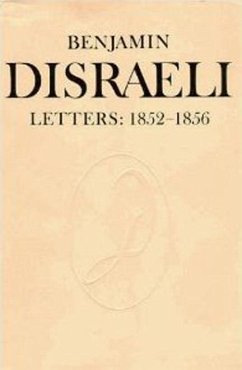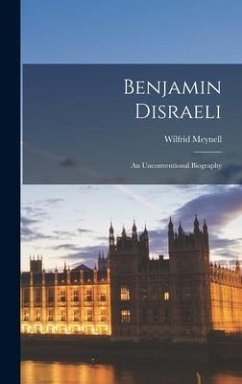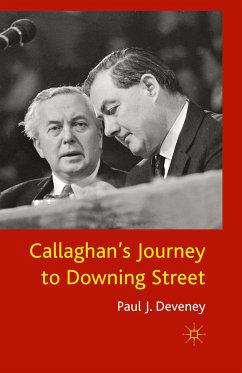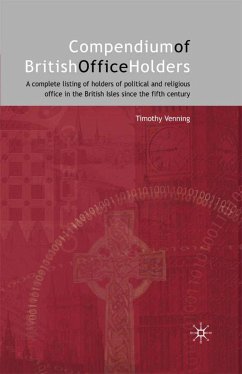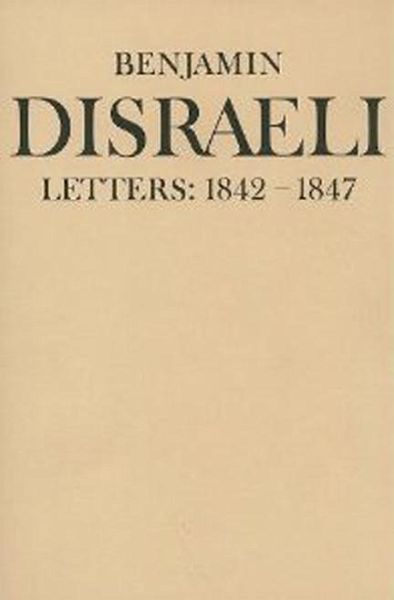
Benjamin Disraeli Letters
1842-1847, Volume IV
Herausgeber: Conacher, J B; Wiebe, M G
Versandkostenfrei!
Versandfertig in über 4 Wochen
114,99 €
inkl. MwSt.

PAYBACK Punkte
57 °P sammeln!
The 435 letters in this volume cover the most dramatic period of Disraeli's middle life - one which is still subject to continuing debate and interpretation, but the one in which the potential of his diverse talents at last begins to be realized. In his second Parliamentary session (1842 to 1847) the member for Shrewsbury establishes himself as the most exciting speaker in the House of Commons. The letters also provoke reassessment of the political splinter group 'Young England,' whose aims are nothing less than the purge and reform of the Conservative party. In 1947, as a peader of the Protec...
The 435 letters in this volume cover the most dramatic period of Disraeli's middle life - one which is still subject to continuing debate and interpretation, but the one in which the potential of his diverse talents at last begins to be realized. In his second Parliamentary session (1842 to 1847) the member for Shrewsbury establishes himself as the most exciting speaker in the House of Commons. The letters also provoke reassessment of the political splinter group 'Young England,' whose aims are nothing less than the purge and reform of the Conservative party. In 1947, as a peader of the Protectionists, he achieves his political goal of fifteen before: election as a member in his home county of Buckinghamshire. In this period, too, he becomes a best-selling novelist, with his three 'condition of England' novels. Finally, as 'knight of the shire' and with his debts more manageable through the help and thrift of his wife, Mary Anne, he is in a position to realize another ambition, that of becoming a country gentleman, and begins the purchase of Hughenden Manor. Ten appendixes include Disraeli's 1847 election canvass lists, his commonplace books of this period, and a complete inventory of the contents of his London residence, the collateral for a desperate loan in 1842.



